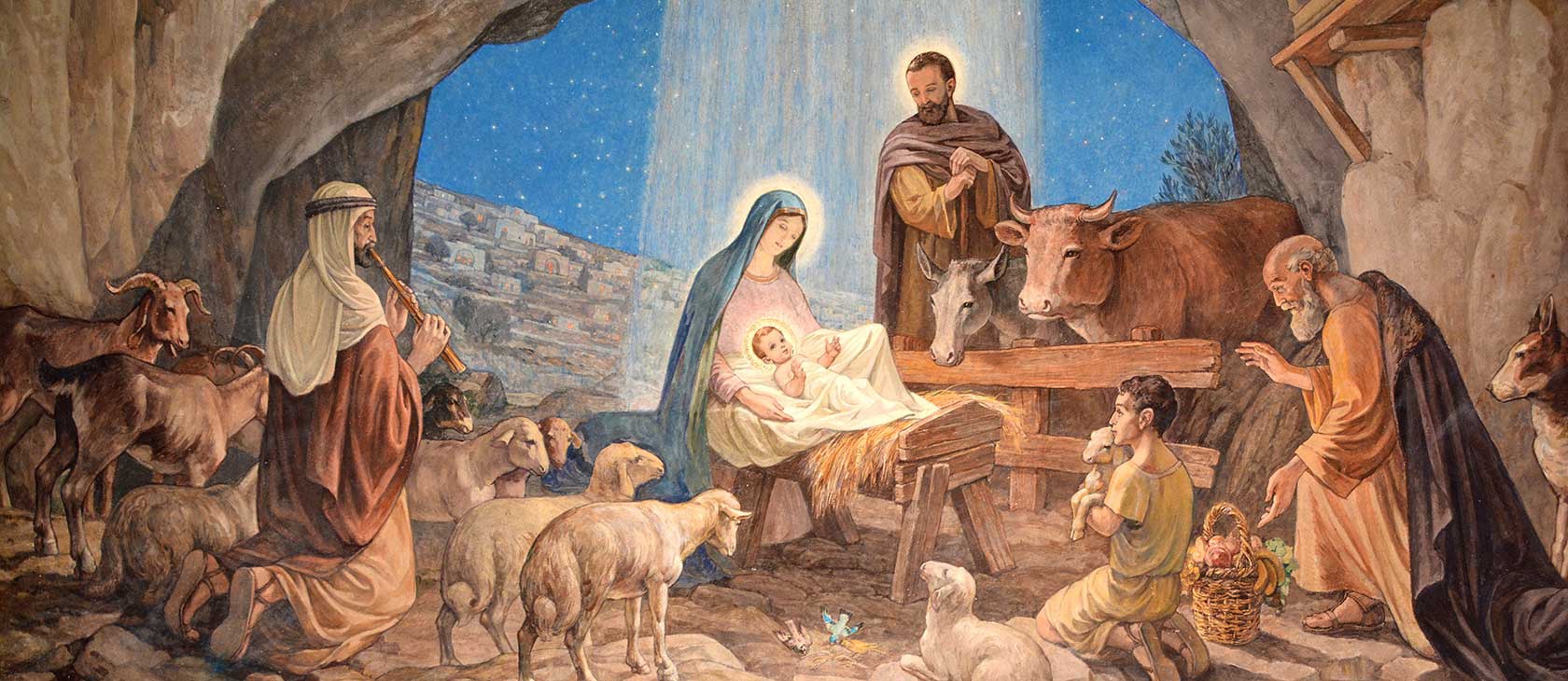Although the word nostalgia can be used to express a bittersweet longing for some pleasant remembrance of one’s past, it is safe to say that this is the time of the year when it is virtually unavoidable to drift into a sustained sense of nostalgia and where its experience is most intense. This is a time when our minds go back to a younger version of ourselves: to the sights and the sounds and the smells of our mothers’ kitchens, and the excitement and anticipation of opening gifts for Christmas.
I suspect, however, that there is an even deeper meaning to this palpable experience in Advent and Christmas. I recall feeling a deep sense of longing for something in the past one Christmas evening when I was about nine years old. Once all the relatives had gone their separate ways and my mother had stored the last morsels of the feasts and restored the remains of the day and had finally gotten off her feet, a wave of reflection swept over me. How much looking back can a nine year old do, after all?
Bethlehem might be described as our common home for which we each long.
What I realize now is that I was not, in fact, surveying the previous years of so short a life. My mind, our minds, go back much further, to a home, indeed an origin we recognize as if by nature, even when words escape the description. I refer, of course to that first Christmas. Bethlehem might be described as our common home for which we each long. And Bethlehem is itself the restoration of God’s original intention in the creation of his world. What occurs in Bethlehem, or more specifically in the womb that “yon Virgin” is the healing of a primordial scar at the base of humankind.
It is the Christian contention that the ineffable God of the universe deigns to descend into the material world so as to reconcile it to himself by the incarnation of his Son. The experience of this nostalgia, made acute by their concrete particularity, tells us something about ourselves and our origins, not unlike but more profound and explanatory: the fond recollection of the sweet thickness of that under-crust of your aunt’s cinnamon roll, where all the brown sugar has coagulated and almost hardened; or the simple yet evocative smell of percolated coffee in one of those old tin coffee pots; or the smell of my father’s Old Spice Christmas gift (his gift every year). A grandmother’s apron.
I’m sure any number of things could account for experiences of nostalgia, but undergirding them all is some concrete particularity in which the tangible nature of our memories and their associations with things touch upon our deepest senses and longings. To my mind this is appropriate enough because the very feast day that we are celebrating has to do with the material world, or more precisely, with the divine breaking out of our material world, and in doing so, throwing back meaning upon the whole of the human endeavor.
The incarnation of God’s Son, we are taught, by the scriptures and reinforced in the art and music of the Christian tradition, tells us of a world that was broken but has been restored. The world spoken of and to in this telling of the story is not just some cerebral concept, or an aggregate or ephemeral yearning, but a concrete reality. Sin, after all, affects not only our souls, but our society, indeed our whole world and all of its parts.
But so does redemption, so that the very substance of the physical might become the vehicle of salvation, whether it be the water of baptism, or the bread and wine of Communion, or the act of matrimonial love; God works his love through all of these. So too the entirety of our world may become sanctified, indeed sacramentalized.
This could include our family feasts, our gift giving and even our work, if these are offered to God for his glory. This God, Immanuel, is “with us” in the whole of it all: from the baby’s cry in the manger to our commerce and trade, even as the poet Gerard Manley Hopkins said in “Pied Beauty”:
Glory be to God for dappled things –
For skies of couple-colour as a brinded cow;
For rose-moles all in stipple upon trout that swim;
Fresh-firecoal chestnut-falls; finches’ wings;
Landscape plotted and pieced – fold, fallow, and plough;
And all trades, their gear and tackle and trim.
All things counter, original, spare, strange;
Whatever is fickle, freckled (who knows how?)
With swift, slow; sweet, sour; adazzle, dim;
He fathers-forth whose beauty is past change:
Praise Him.













